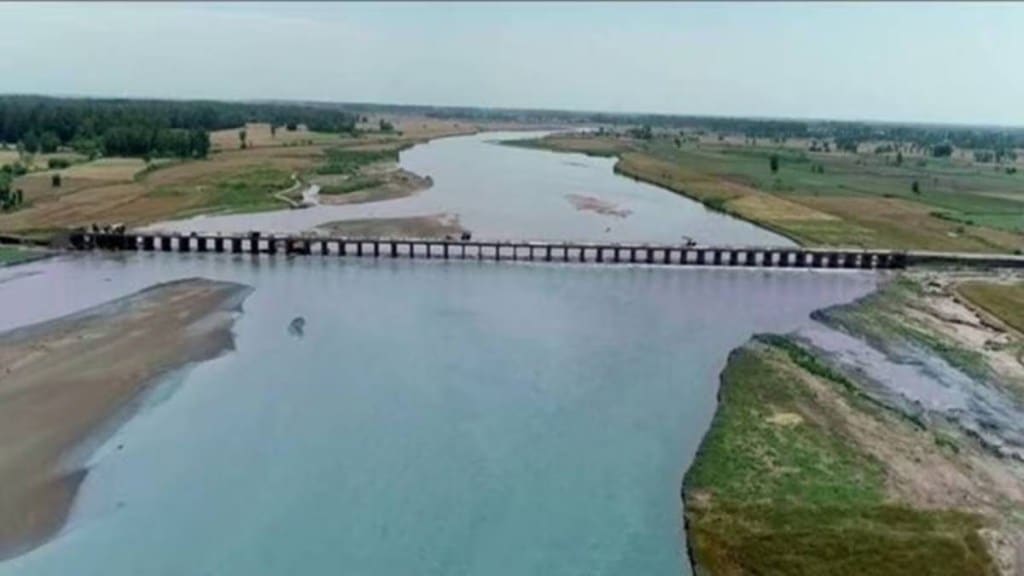The recent diplomatic engagements between India and Bangladesh have stirred up considerable controversy in West Bengal. Chief Minister Mamata Banerjee has expressed her displeasure at being excluded from the discussions regarding the renewal of the Ganga Water Treaty. Her concerns highlight the intricate dynamics of water sharing between the two nations and the implications for the Indian state of West Bengal.
The 1996 Ganga Water Treaty: An Overview
The Ganga Water Treaty, signed in 1996, is a landmark agreement between India and Bangladesh aimed at sharing the waters of the Ganges River. This treaty was crucial in resolving disputes that arose following the construction of the Farakka Barrage by India in 1975. The barrage was built to divert water from the Ganges to the River Hooghly, ensuring the navigability of the Calcutta port.
Under the treaty, the water sharing at Farakka, a dam on the River Bhagirathi located about 10 kilometers from the Bangladesh border, is methodically scheduled. The agreement outlines the amount of water India is to release during the dry season, from January to May. According to the treaty, if the water availability at Farakka exceeds 75,000 cubic feet per second (cusecs), India can withdraw up to 40,000 cusecs. If the flow is between 70,000 and 75,000 cusecs, Bangladesh is guaranteed 35,000 cusecs. Should the availability fall below 70,000 cusecs, the water is divided equally between the two countries.
The treaty, which is set to expire on December 12, 2026, is the second of its kind, with the first agreement being signed in 1977. The treaty’s renewal process has now become a point of contention, especially for West Bengal, given its geographical and economic reliance on the Ganges and its tributaries.
Mamata Banerjee’s Stance
West Bengal Chief Minister Mamata Banerjee’s opposition to the recent developments stems from her exclusion from the talks between India and Bangladesh. In a letter to Prime Minister Narendra Modi, Banerjee expressed her dissatisfaction with the lack of consultation with the West Bengal government regarding the Ganga Water Treaty and the Teesta River discussions.
She stated that any decisions made unilaterally by the central government without involving the state government are unacceptable. She argued that the people of West Bengal would bear the brunt of any adverse effects resulting from water-sharing agreements. Highlighting the significance of the Farakka Barrage, Banerjee noted that the water diverted at Farakka is crucial for maintaining the navigability of the Kolkata port and supporting the livelihoods of the state’s residents.
The Teesta River Issue
The Teesta River, the second-largest river in West Bengal after the Ganges, has been another focal point of contention. The river flows through both India and Bangladesh, making its water sharing a sensitive issue. Banerjee has consistently opposed the idea of sharing Teesta waters with Bangladesh, citing the decreasing water flow over the years and the potential negative impact on irrigation and drinking water supplies in North Bengal.
In 2011, Banerjee had thwarted a move by the Congress-led UPA government to sign a water-sharing agreement with Bangladesh. She argued that such an agreement would adversely affect the farmers of West Bengal. Her stance has remained firm, as demonstrated by her recent letter to PM Modi, in which she reiterated the necessity of preserving Teesta waters for the people of North Bengal.
Central Government’s Response
In response to Banerjee’s concerns, sources indicated that the West Bengal government had been kept informed about the discussions with Bangladesh. Reports suggest that the central government had written to the West Bengal administration in July 2023, seeking a nominee for a committee to review the 1996 treaty. In August 2023, the state nominated its Chief Engineer (Design and Research) from the Irrigation and Waterways Department to the committee.
Furthermore, in April 2024, the West Bengal government’s Joint Secretary (Works, Irrigation & Waterways Department) communicated the state’s total water demand for the next 30 years from the stretch downstream of the Farakka Barrage. This indicates that while there has been some level of communication, the state government feels it has not been adequately involved in critical decision-making processes.
Implications for West Bengal
The renewal of the Ganga Water Treaty and any potential agreements on the Teesta River have significant implications for West Bengal. The state’s agriculture, industry, and daily life are closely tied to the availability and management of these water resources. Any reduction in water flow can have cascading effects, from reduced agricultural productivity to challenges in maintaining the Kolkata port’s operations.

